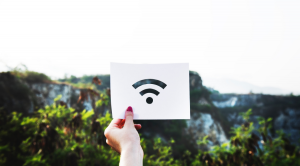GPS spoofing: what it is and how to avoid it
GPS spoofing is the act of sending out a fake GPS signal to trick the receiving device into believing that it is in a different location than it actually is. This method is often used for harmless purposes such as gaming or protecting privacy. However, in some cases, it can be exploited to commit fraud or divert goods with malicious intent.
If this concept seems complicated, don't worry. This article will explain how GPS spoofing works, the risks it can pose, and most importantly, how you can protect yourself from the threats posed by this technique.
GPS spoofing: Potential risks and how to protect yourself
What is GPS spoofing?
GPS spoofing is the practice of sending out fake GPS signals to trick a device into thinking it is in a different location than it actually is. Devices such as phones, car navigation systems, or smartwatches can be fooled when the fake signal is stronger than the real one, resulting in incorrect location calculations and incorrect information being displayed.
While sometimes used for innocuous purposes such as privacy or gaming, GPS spoofing can be used to cause harm, from disrupting navigation services to endangering lives in industries that rely on GPS, such as shipping and aviation.
How GPS spoofing works
GPS systems work by using signals from satellites to calculate location. Satellite signals are often weak by the time they reach your device, making them vulnerable to being replaced by stronger fake signals. GPS spoofing exploits this vulnerability by broadcasting signals at the same frequency as real satellites, mimicking the structure and timing of the original signal.
Unprotected devices can easily pick up the spoofed signals, resulting in an inaccurate location display. This is similar to a fake lighthouse leading ships astray.
Harmful effects of GPS spoofing
Disruption of navigation systems: Vehicles such as cars, ships and planes rely on GPS to operate safely. GPS spoofing can cause vehicles to go off course, causing collisions or landing in dangerous areas.
Impact on personal devices: Incorrect location data can disrupt services such as ride-sharing, health monitoring or even hinder rescue in an emergency.
Threat to GPS-dependent industries: Cybercriminals can use GPS spoofing to attack the transportation, logistics or security industries, disrupting operations and causing huge losses.
How to Protect Yourself from GPS Spoofing
Use an encrypted GPS device: Devices that encrypt their GPS signals are harder to spoof, preventing fake signals from being accepted.
Multi-factor location verification: Cross-checking GPS data with other sources like Wi-Fi or cellular signals helps increase accuracy and detect fake signals.
Update your software regularly: Updates can fix vulnerabilities and improve protection against fake signals.
Use a VPN: RICE VPN masks your IP address, reducing the risk of hackers using it to locate and spoof your GPS signal.
Take action now to protect yourself
GPS spoofing can cause serious problems, from falsifying personal location data to disrupting industries. By using secure devices, enabling verification measures, and updating regularly, you can minimize the risk and keep your location data safe.










